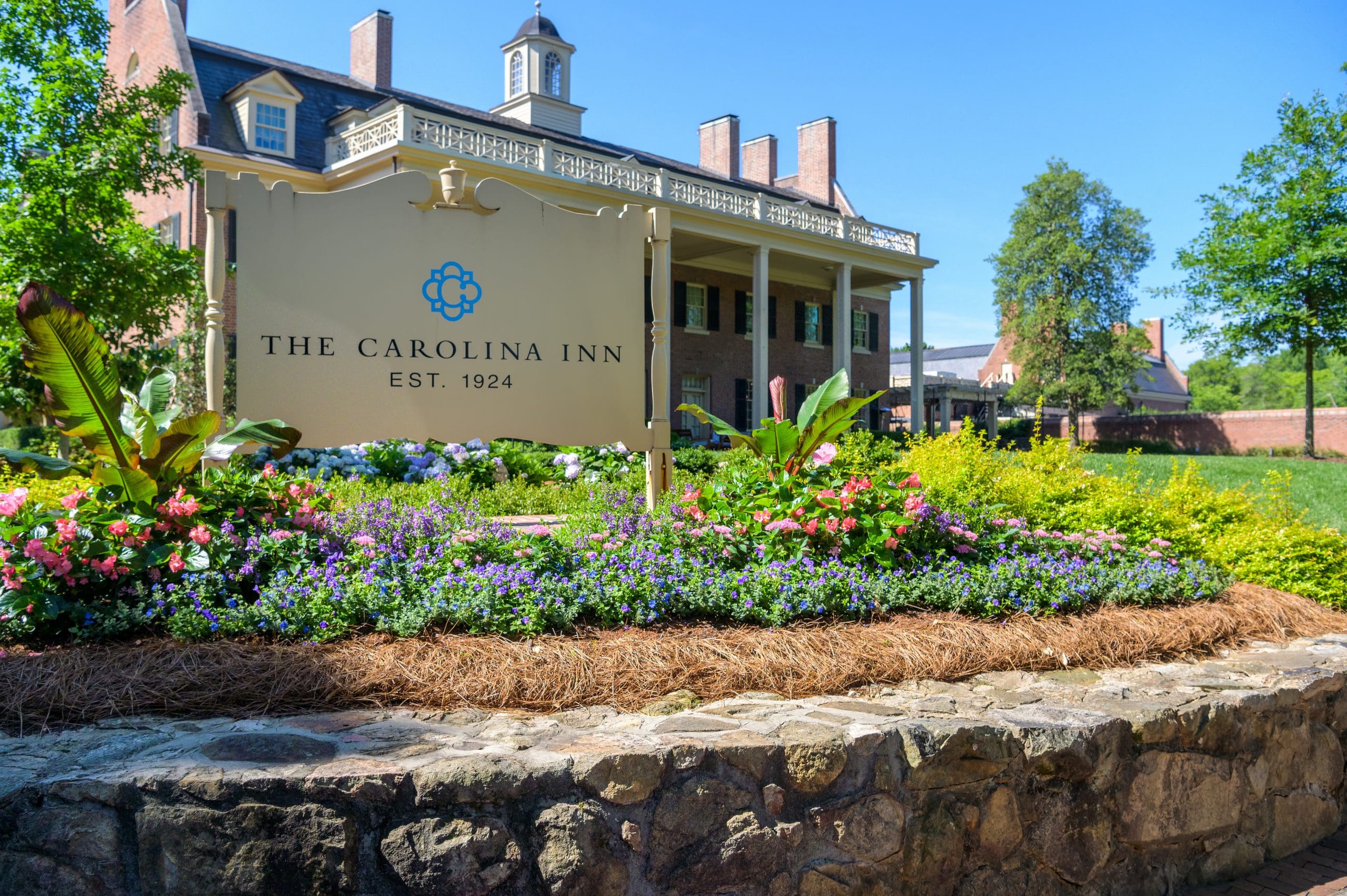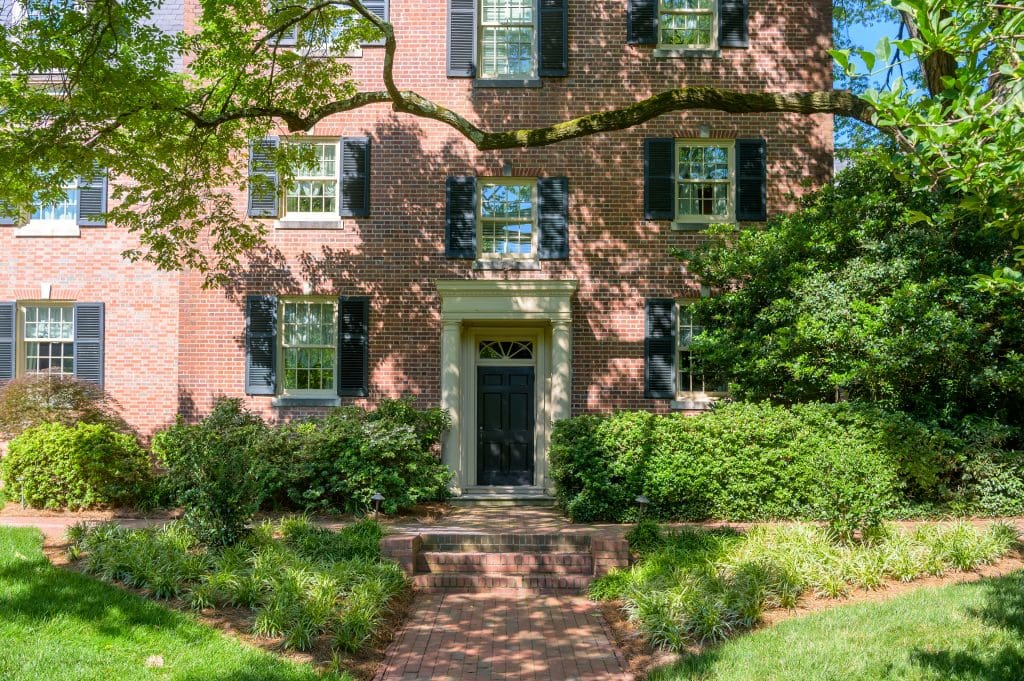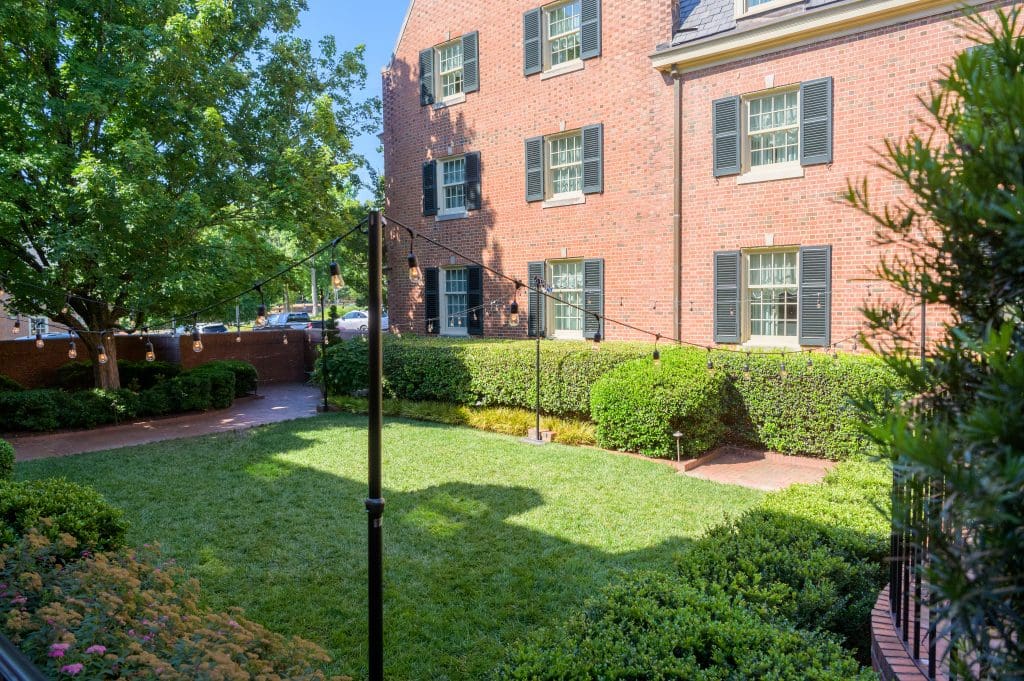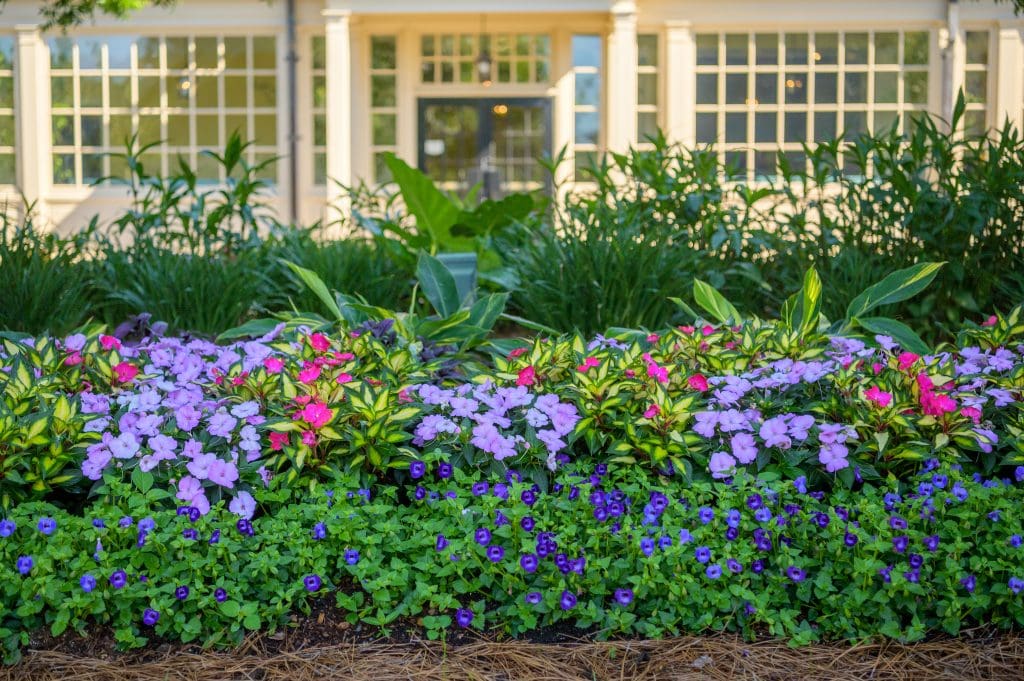
The Carolina Inn is an upscale hotel located on-campus at the University of North Carolina at Chapel Hill. It is known to host university-related gatherings, including alumni weddings and other private events, which lead to the hotel’s need for a landscaping update.
Due to the hotel’s distinguished location and entertainment duties, the client brought on Myatt Landscaping & Construction, based in Fuquay Varina, North Carolina to construct a landscape with the ability to withstand heavy traffic while still generating a charming backdrop throughout every season.
Myatt’s hard work on the Carolina Inn resulted in them winning a Gold Award in the 2021 Awards of Excellence.

“It means a lot to Myatt since it is a small family-owned and operated company,” says Zack Borland, an account manager for Myatt. “The crew takes pride and appreciates the honor. As for me receiving the award, I’m honored and (it) makes me happy to be part of this team.”
Heavy traffic was the leading issue throughout the landscape construction.
“The foot traffic is by far one of the toughest on-site,” Borland says “The hotel is located by UNC-Chapel Hill so you have a lot of students walking through as well as hotel guests. Also, there are vendors who put up large tents for events such as weddings and company outing events. The turf on-site does get a pounding.”
The heavy traffic combined with shade cast from large, historic trees created a tough environment for the turf areas located around the hotel. Some turf areas only have a few inches of soil above the concrete areas associated with retrofitted infrastructures to the hotel building, causing some turf to turn yellow or dry out.

Additionally, to aid in drainage on the main lawn, the hotel has a layer of permatill, which was installed underneath the turf several years ago. The permatill is well-functioning, but it means that overseeding will be less successful due to aeration not being possible in that area.
Another challenge was the way the irrigation system is set up. The staff did not have direct access to the controller, which required a lot of conversing with the hotel staff.
Since the trees and shrubs created shady areas and low airflow in courtyard areas, this created damper conditions, which led to pest issues. Not only were pests an issue, but due to a noise ordinance, the use of power tools was not allowed before 9 a.m., and when combined with events being set up and guests constantly coming and going, it made maintenance incredibly difficult.
While the tall fescue can tolerate drought and heat stress, it does not do well with heavy foot traffic. To increase resilience, the turf was kept a lot taller than usual, which helped aid in moisture and weed control. The fescue areas, minus the great lawn, are aerated and seeded every fall, and regular seeding and fungal treatment are performed throughout the year.
To improve the health of smaller trees and shrubs located within the courtyard, structural pruning was done in the winter months to increase airflow and reduce the risk of pests and moisture to prevent fungal disease. Occasional pest treatments were also performed when issues began to arise.

To help with the scheduling challenges, the crew was incredibly flexible when giving event coordinators and contractors access to different parts of the property. Communication was key when it came to completing this project.
Quieter activities, such as hand pruning, watering, fertilizing, and trash pickup was done before 9 a.m., or if space was being occupied by guests. Some of the hedges on the property grew incredibly quickly, requiring frequent power shearing throughout the growing season.
To enhance efficiency and decrease the amount of noise, plant growth regulators were applied after the first shear of the season. Now, the hedges only require shearing one to two times per year.
Interested in participating in the Awards of Excellence? Be sure to enter your projects by July 11, 2022.

